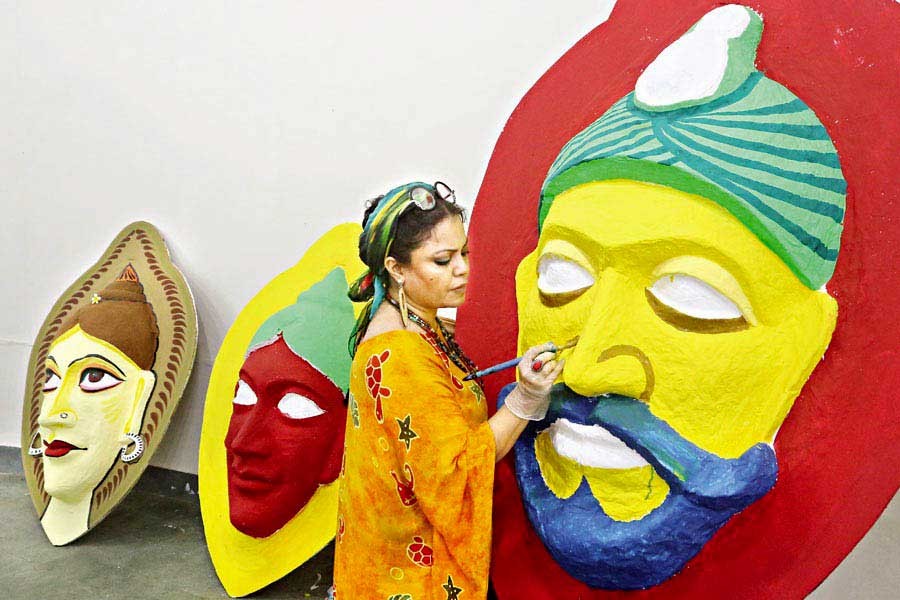Pahela Baishakh, the first day of Bengali New Year 1429, will be celebrated across the country today (Thursday) after two years of hiatus caused by the Covid-19 pandemic.
The festivities of the first day of the Bangla calendar will begin at dawn on the day at Ramna Batamul in Dhaka. Artistes from Chhayanaut will welcome the day with Tagore’s famous song ‘Esho hey Baishakh, esho, esho’ under the banyan tree at the park, report UNB and BSS.
The Fine Arts Faculty of Dhaka University will bring out the traditional Mangal Shovajatra (procession) in the morning.
However, the celebrations will be on a limited scale this year due to the ongoing holy month of Ramadan. Dhaka Metropolitan Police Commissioner Shafiqul Islam has urged all to end celebrations by 2:00 pm.
Besides, no food stalls will remain open on this day as Muslim devotees perform fasting during the holy month of Ramadan.
People are expected to join the "Nabo Barsho" festivities across the country, particularly in the capital city.
Pahela Baishakh is one of the most colourful festivals through which the Bengali people bid farewell to the old year and welcome the new year.
On this occasion, people from all walks of life wear traditional Bengali dresses.
Young women wear white sarees with red borders and adorn themselves with bangles, flowers, and tips, while men wear white pyjamas and panjabi or kurta.
Business communities, especially in the rural areas, are ready to open their traditional 'Halkhata', new account books. On the day traders also offer sweets to customers.
President Abdul Hamid and Prime Minister Sheikh Hasina are expected to issue separate messages greeting the countrymen on the eve of the Pahela Baishakh.
Abdul Hamid, in his message, wished all Bangladeshis living in the country and abroad a happy Bengali New Year.
In a separate message, the prime minister called upon all, irrespective of religion and caste, to wake up with new joy forgetting the sorrows and failures of the past year.
She hoped that the first Baishakh of this year will be celebrated again in a joyous atmosphere after two years.
The prime minister also gave a televised address to the nation on the eve of Pahela Boishakh, the Bengali New Year.
Different government and non-government organisations, and socio-cultural platforms will hold various programmes along with seminars, exhibitions and quiz, essay and art compositions to observe the day across the country.
Graffiti will be painted on the walls signifying the arts, culture and heritage of the country.
On this occasion, all museum and archaeological sites will remain open for all while children, students, people with disabilities and autism will be allowed to visit the museum free of cost.
Improved traditional food will be distributed to jail inmates and patients in hospitals and orphanages on the occasion.
Bangladesh missions abroad will also organise different programmes to welcome the New Year.
The law enforcement agencies will take extensive security measures across the country so that people could celebrate the day.
The day is a public holiday.
Different national dailies will publish colourful supplements while Bangladesh Television, Bangladesh Betar and other private TV and radio channels will air special programmes highlighting the significance of Pahela Baishakh.
Some historians attribute the Bengali calendar to the 7th-century king Shashanka, which was later modified by Mughal emperor Akbar for tax collection.
During the Mughal rule, land taxes were collected from Bengali people according to the Islamic Hijri calendar. This calendar was lunar, and its new year did not coincide with the solar agricultural cycles.
Akbar asked the royal astronomer Fathullah Shirazi to create a new calendar by combining the lunar Islamic calendar and solar Hindu calendar already in use, and this was known as Fasholi shan (harvest calendar).


